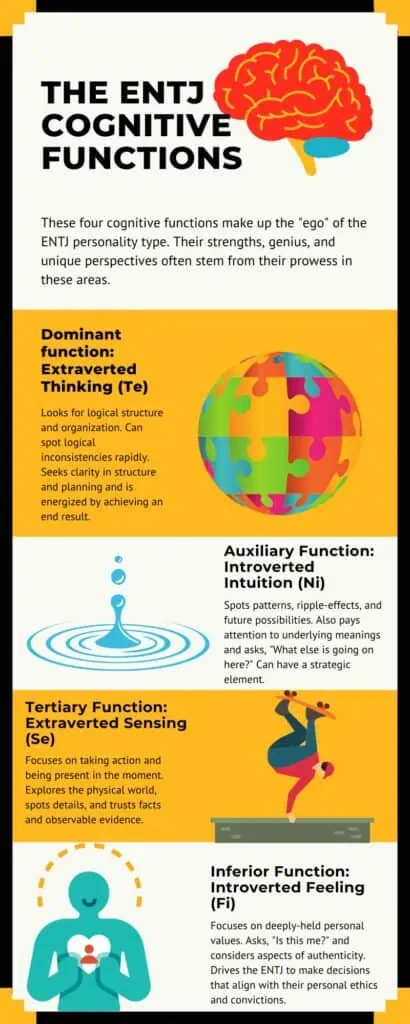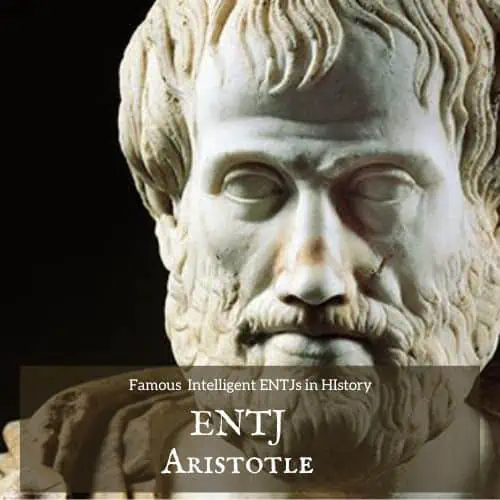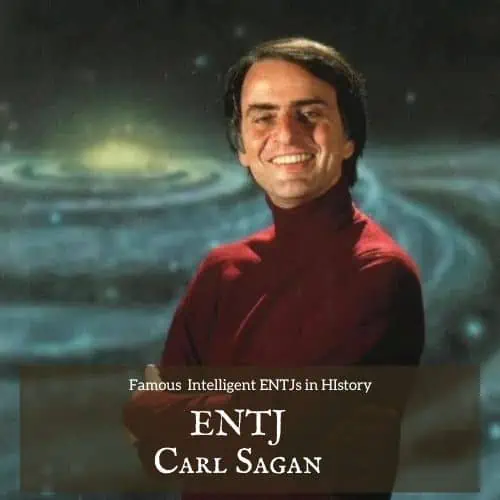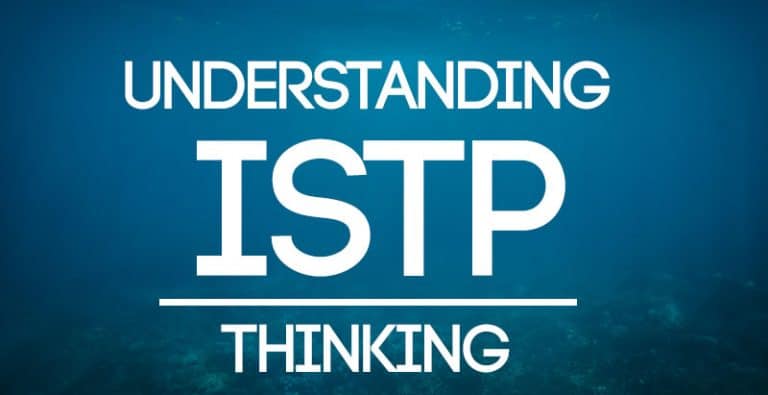Are ENTJs Smart? A Look at the Strategic Visionary
Are ENTJs intelligent? What kind of “smarts” does this particular personality type possess? Let’s begin exploring how ENTJs understand the world, make decisions, and express their intellect.
Not sure what your personality type is? Take our new personality questionnaire here. Or you can take the official MBTI® here.

Are ENTJs Smart? A Look at the Strategic Visionary
While any personality type can be intelligent, ENTJs have a specific form of intellect that stems from their natural psychological preferences.
ENTJ’s use a mental process called Extraverted Thinking, or “Te” for short. This process focuses on objective logic, creating effective systems, improving clarity and order, and structuring and organizing the external world. This translates to a fierce emphasis on empirical evidence, logic, and data-driven decisions. Whether they are collecting evidence, mapping out a plan, or setting long-term goals, they thrive on objective analysis and troubleshooting.
ENTJs are also people of action. They take in data constantly, but piece out data that seems actionable and useful. Once they have this information, they can run with it and create goals, strategies, and sequences quickly. Psychologist David Keirsey states, “ENTJs organize their units into a smooth-functioning system, planning in advance, keeping both short-term and long-range objectives well in mind. They seek and can see efficiency and effectiveness in personnel. They prefer decisions to be based on impersonal data.”
Strategic intelligence is an area where ENTJs naturally shine. With a clear goal in mind, they excel at transforming disorder into a well-functioning system. However, their talents do not extend to managing emotional complexities. While they can learn to manage and influence the emotional world, it is not a natural strength but a cultivated one. Many ENTJs are of the belief that “facts don’t care about your feelings” and that feelings can muddy the waters of being effective. With proper maturity, however, ENTJs can learn to be emotionally understanding as well as patient with the nuanced emotions that are a natural and even important part of life.
Intuitive Intelligence:
ENTJs have a talent for spotting trends and predicting outcomes. This is partly thanks to another mental process they possess called Introverted Intuition, or “Ni” for short. This function focuses on ripple-effects, implications, perspectives, and abstract understanding. Due to their intuitive prowess, ENTJs are skilled at seeing patterns and connecting the dots. Unlike others who can get bogged down in the details of a situation, ENTJs maintain their focus on the end goal and can keep motivated when they have a clear vision they are working towards.
Famed founding father Alexander Hamilton once said, “I may not live to see our glory. But I will gladly join the fight. And when our children tell our story, they’ll tell the story of tonight.” This quote is an example of how ENTJs can be willing to put in a lot of hard work now in order to achieve the vision they want of the future later. When ENTJs pair their strategic intelligence with a value they hold dear (as in Alexander Hamilton’s case) they are capable of revolutionary change and intense hard-work, grit, and loyalty.
The ENTJ’s intuition leads them to be curious about abstract or conceptual topics. While some may find theoretical analysis a chore, the ENTJ finds it intriguing – as long as it has practical application or some personal significance to them.
ENTJ Openness to Criticism:
One of the gifts of Extraverted Thinking is the ability to give and receive constructive criticism without getting all ruffled about it.
ENTJ’s view critique as a tool that helps people identify weaknesses and work towards personal and professional improvement. They believe that without constructive criticism, we would be unable to identify flaws in our work and areas that need improvement. And because ENTJs are always on the path towards improvement, they see criticism as an indispensable tool for progress.
Carl Sagan’s quote, “Valid criticism is doing you a favor,” speaks volumes about how ENTJ’s view constructive criticism. They understand that hearing flaws in work or behavior may not be comfortable, but they find value in the feedback. Unfortunately, ENTJ’s often run into areas in their personal lives where their criticisms are seen as personal attacks rather than helpful tools. At their best, ENTJs give criticism with kindness and consideration. At their worst, ENTJs can be destructively critical and harsh – appearing more like bulls in china shops than supportive mentors.
The ENTJ Learning Style
ENTJs are notorious for enjoying structured and organized environments where there is a clear goal or outcome. They thrive in settings where there is an overarching goal but they are free to accomplish that goal in whatever way they deem necessary. This is because ENTJs are big-picture thinkers; they prefer to see the whole picture rather than just small details. Organized learning environments help them stay on track and keep a sense of control over the learning process.
Another interesting trait of the ENTJ learning style is their love of verbal communication. ENTJs love to talk and discuss ideas, and often need to think out loud in order to fully process information. They are at their best when they can engage in deep conversations about topics that interest them. Debate and discussion are helpful for them to refine their own ideas, and they are likely to be comfortable challenging others’ viewpoints.
As ENTJs learn, they construct and reconstruct mental models of their ideas, envisioning new ways to accomplish things. They learn well when they can use conceptual organizers and explore the broad meaning of things. They understand concepts and ideas best when they can see how they all fit together into a larger picture. They crave the opportunity to put their ideas into practice, and are more likely to remember things when they can connect them to actionable plans.
Another aspect of the ENTJ learning style is that they can be adept independent learners. They enjoy taking initiative and being able to have some authority over their own work. Micro-management will undermine their motivation and make them feel apathetic about what they’re doing. They enjoy learning at their own pace and in their own way, but also appreciate constructive feedback, deadlines, and a clear end-goal.
Study Needs:
1. An Environment Free from Emotional Distractions
ENTJs value their time and view education as a serious investment in their future success. As such, they prefer a learning environment that is free from emotional disruptions that might impede their progress. In the classroom, they are likely to be highly focused, disciplined, and goal-oriented, and they expect their peers and instructors to be the same. Group projects that involve a lot of chit-chat, joking around, or overly emotional discussions may fuel an ENTJ’s irritation.
2. Interesting Problems to Analyze
ENTJs have a natural affinity for complex problems that require critical thinking and strategic planning. For them, the learning process must be engaging, intellectually stimulating, and relevant to their long-term goals. They may prefer assignments that require them to apply their logic and creativity to real-world scenarios, rather than memorizing information that may never be useful in their future career. As such, incorporating case studies, simulations, and other interactive exercises can help engage ENTJs in the learning process and help them hone their problem-solving skills.
3. Clear Accountability for Learning Outcomes
Unlike some other personality types, ENTJs thrive in environments where they have a clear understanding of what is expected of them and how they will be evaluated. They prefer well-designed curricula and assignments with defined objectives that are aligned with their long-term goals. They thrive when there is a sense of structure and organization, and they may feel frustrated in environments where expectations are ambiguous, or where there is a lack of clear direction or guidance.
4. External Reasons for Learning
For ENTJs, there must be a strong external reason for studying and learning. They are motivated by the prospect of achieving tangible outcomes, such as passing a certification exam, acquiring a new skill, or improving their career prospects. The intrinsic value of learning may not be as important to them as the practical applications and outcomes that result from it. Instructors can take advantage of this motivation by emphasizing the real-world applications of the concepts they teach, as well as providing opportunities for students to apply their learning in practical contexts.
Examples of intelligent ENTJs in history:
1. Alexander Hamilton
“Men give me credit for some genius. All the genius I have lies in this; when I have a subject in hand, I study it profoundly. Day and night it is before me. My mind becomes pervaded with it. Then the effort that I have made is what people are pleased to call the fruit of genius. It is the fruit of labor and thought.” – Alexander Hamilton
Alexander Hamilton was an American statesman and founding father who played a critical role in the development of the United States. His Extraverted Thinking (Te) personality trait was evident from an early age as he excelled in planning, strategizing, and creating policies. His Introverted Intuition (Ni) trait allowed him to connect dots that others didn’t see, enabling him to draft the first constitution. Hamilton served as a key aide to George Washington, founded the Federalist Party, and played a crucial role in designing America’s economic system. Hamilton’s Te enabled him to develop pragmatic policies while his Ni allowed him to envision a future for the country that others couldn’t see.
2. Aristotle
“Excellence is never an accident. It is always the result of high intention, sincere effort, and intelligent execution; it represents the wise choice of many alternatives – choice, not chance, determines your destiny.” – Aristotle
Aristotle was a Greek philosopher, scientist, and polymath. His Extraverted Thinking manifested itself in his relentless pursuit of knowledge, while his Introverted Intuition allowed him to visualize theoretical concepts. Aristotle’s work spanned across physics, metaphysics, ethics, politics, and rhetoric, and he established many concepts that remain foundational today. Aristotle utilized his Thinking side to develop theories based on empirical evidence, and his Intuition helped him envision how specific theories fit together to form a broader perspective.
3. Carl Sagan
“Somewhere, something incredible is waiting to be known.” – Carl Sagan
Carl Sagan was an American astronomer, astrophysicist, and cosmologist. He employed his Extraverted Thinking when he thought critically about the universe and parsed out things that did or didn’t make sense in an empirical way. His natural love of knowledge and his depth of insight helped him build his television series, Cosmos. He could explain far-reaching concepts and studies clearly in a structured way that others could follow along with. His Introverted Intuition gave him a natural curiosity about theories and discoveries in science as well as concepts that had never been fully-refined yet. Sagan’s work focused on the search for extraterrestrial life, and he was instrumental in launching the Voyager spacecraft.
What Are Your Thoughts?
Did you enjoy this article? Do you have any perspective or insights to share? Let us know in the comments!
Discover more about your personality type in our eBooks, Discovering You: Unlocking the Power of Personality Type, The INFJ – Understanding the Mystic, The INTJ – Understanding the Strategist, and The INFP – Understanding the Dreamer. You can also connect with me via Facebook, Instagram, or Twitter!
References:
Building Blocks of Personality Type by Leona Haas and Mark Hunziker, Eltanin Publishing (2006)
Please Understand Me by David Keirsey, Gnosology Books (1984)












